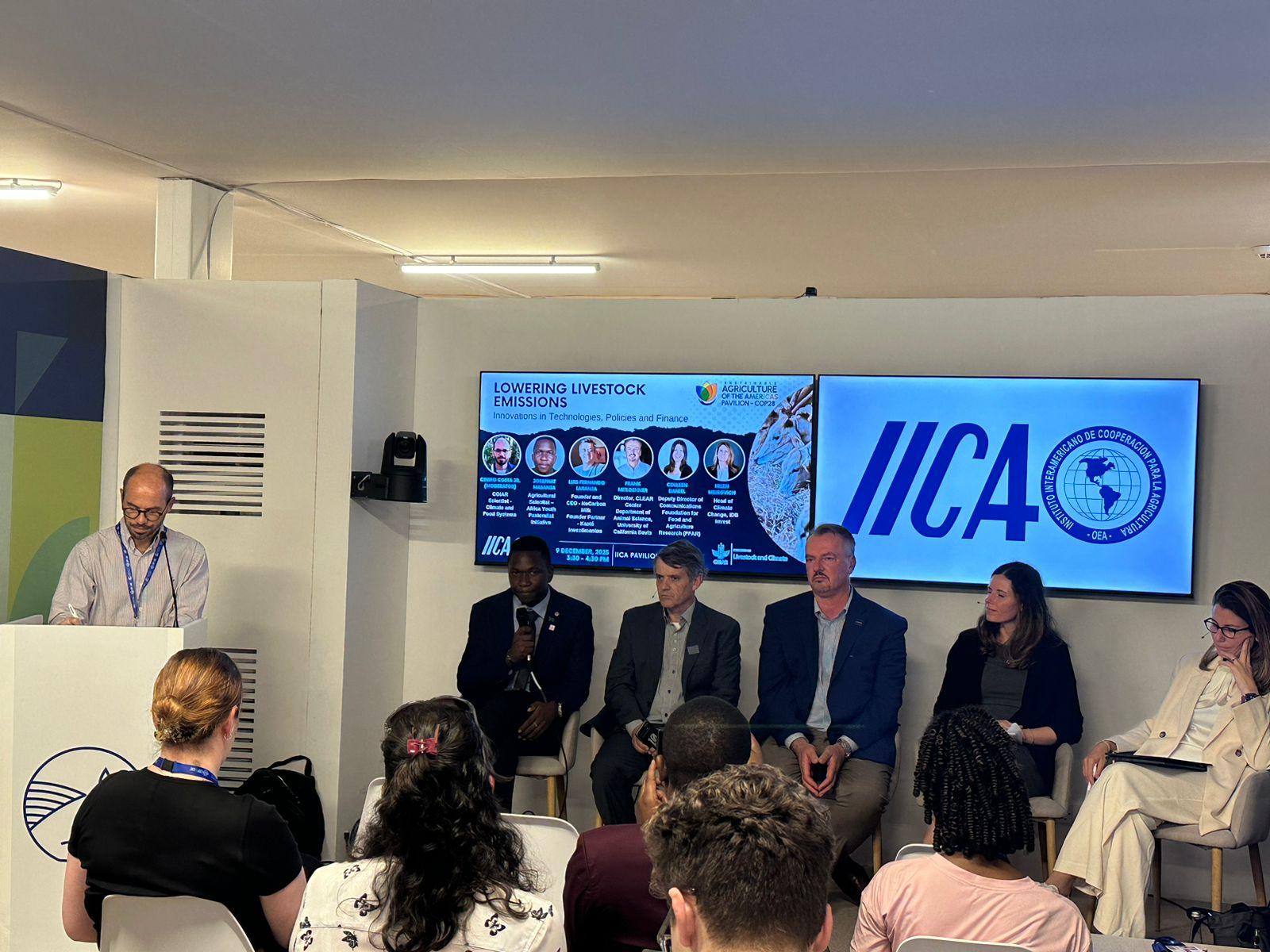
Lowering Livestock Emissions: Innovations in Technologies, Policies and Finance- 9 Dec
Core message
Event Summary
Food systems today contribute to 30% of global emissions, with livestock systems contributing to 60% of this total. Despite their significant environmental impact, livestock systems also hold the greatest emissions mitigation potential. By improving practices, emissions can be reduced by 40-70%. However, unlocking this mitigation potential requires effective partnerships leveraging technology, policy and finance.
‘We can see the livestock sector as a threat or opportunity to climate change adaptation. We need to focus on how livestock can support our adaptation efforts.’ - Luis Fernando Laranja, Founder and CEO at NoCarbon Milk, Founding Partner at Kaete Investimentos
On 9 December, the CGIAR Research Initiative on Livestock and Climate hosted ‘Lowering Livestock Emissions: Innovations in Technology, Policy and Finance’ at the IICA Pavilion. Recognizing the significant contribution of the current food system to global emissions, particularly from livestock production, speakers highlighted the sector's substantial mitigation potential. Insights from Africa emphasized the multifaceted role of livestock in nutrition and economic growth, stressing the importance for emission-reducing measures. Latin America showcased examples of carbon-neutral dairy and beef initiatives, positioning livestock as an opportunity for climate change mitigation. Key themes included methane reduction technologies, funding strategies, and collaborative approaches, emphasizing the need for context-specific solutions and partnerships across stakeholders for effective implementation.
"It is really important that smallholders, the private sector, and government engage in meaningful dialogue to forge a relationship among these three vital groups." - Josephat Masanja, Agricultural Scientist, Africa Youth Pastoral Initiative
Key Takeaways
-
Livestock holds the largest mitigation potential within the food system, with the possibility of reducing emissions by 40-70%, contingent upon partnerships with technology, policy, and finance.
-
In Africa, livestock is crucial for nutrition, economic growth, and acts as insurance during economic shocks; however, emissions pose challenges, and communities are being trained to manage manure effectively. In Latin America and Brazil, livestock is economically and socially vital, with initiatives like carbon-neutral dairy and beef projects offering opportunities for climate change mitigation.
‘Tailoring strategies to context is necessary; in developing nations, elevating productivity can diminish herd sizes and mitigate emissions, while in developed countries, addressing enteric emissions emerges as the primary focus, with concerted efforts directed towards the study of feed additives.’ - Frank Mitloehner, Director, CLEAR Center, Department of Animal Science, University of California Davis
-
Methane reduction technologies vary based on context, with approaches such as improving productivity in developing countries and addressing enteric emissions, feed additives, breeding programs, and vaccination against methane in developed countries. Funding strategies involve tying interest rates to Key Performance Indicators (KPIs) and ensuring scientific support for effective mitigation projects.
‘Science needs to support KPIs in financing, otherwise it edges on greenwashing’ - Hilen Meirovich, Head of Climate Change, IDB Invest
-
Collaboration is essential, cooperation among smallholders, the private sector, and government is crucial for successful implementation. Innovative financing mechanisms, including blended finance and carbon markets, are explored to support emission reduction initiatives, emphasizing the need for scalability and commercial feasibility in research for impactful outcomes.
‘We want to make sure we are always co-creating with farmers and that they have a seat at the table.’ - Colleen Daniel, Deputy Director of Communications, Foundation for Food and Agriculture Research (FFAR)
Watch a recording of the full session here.